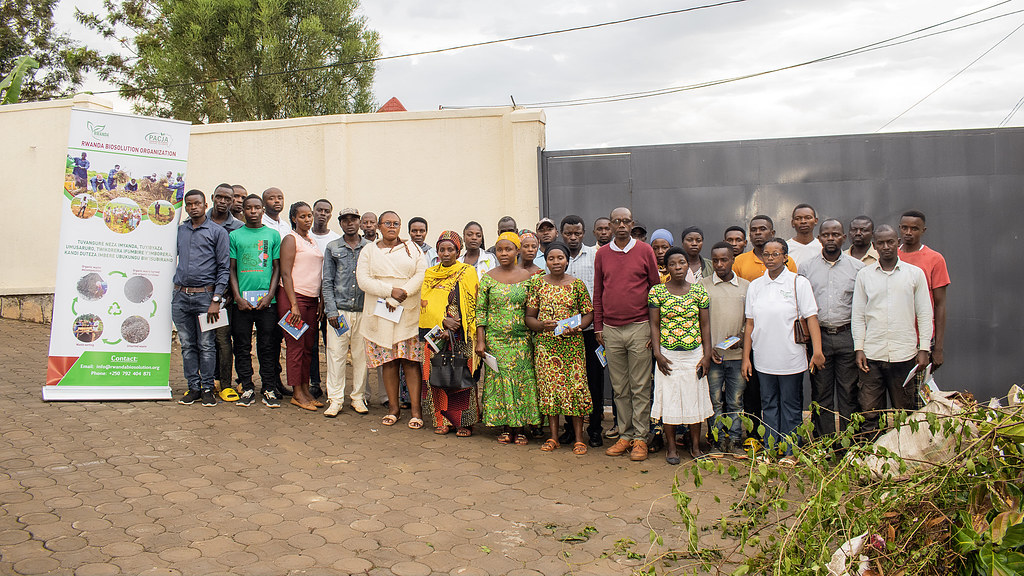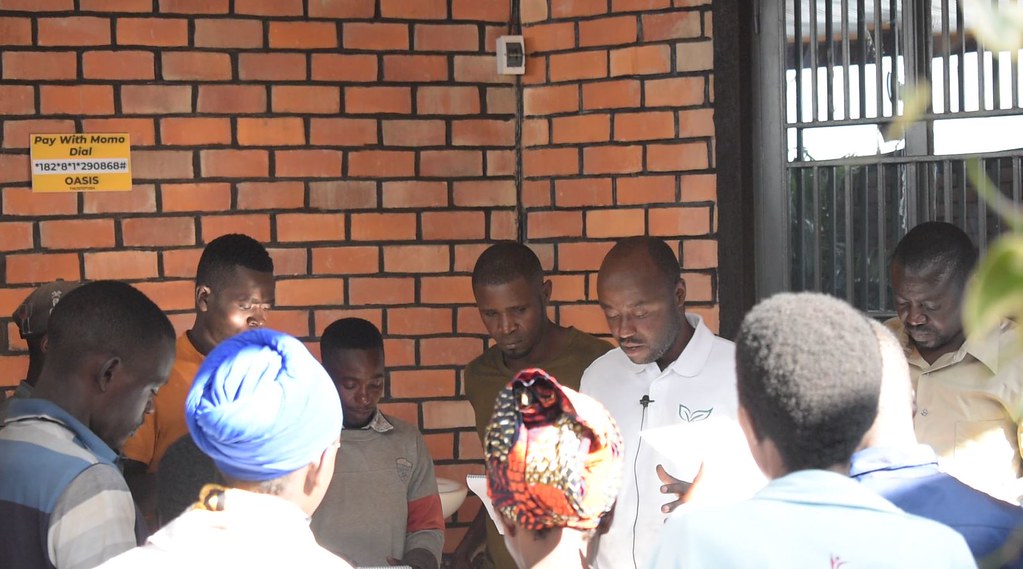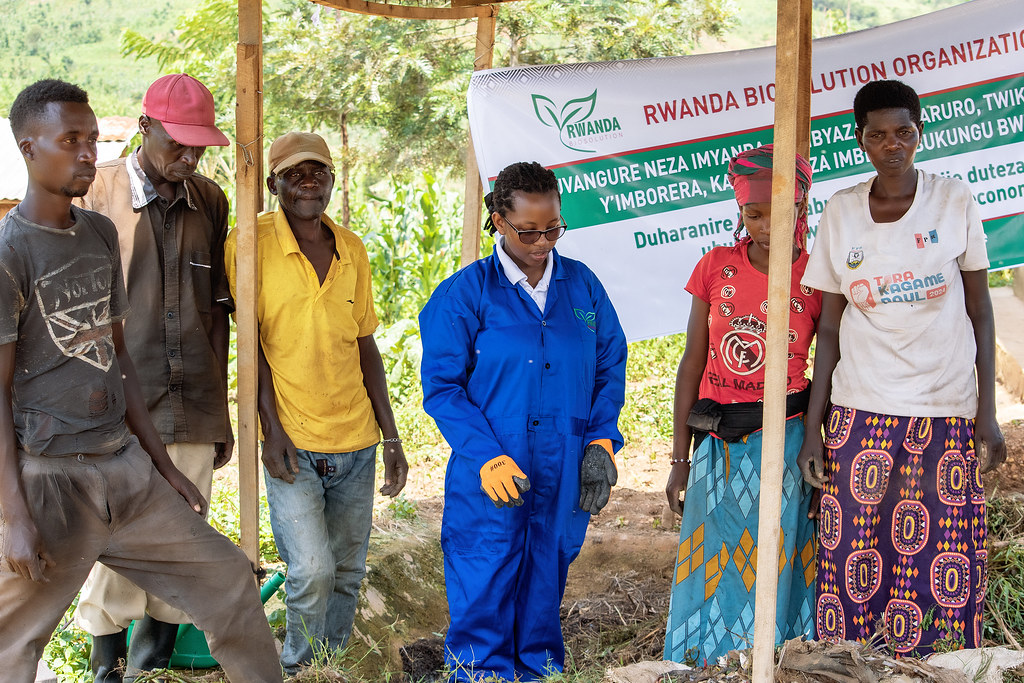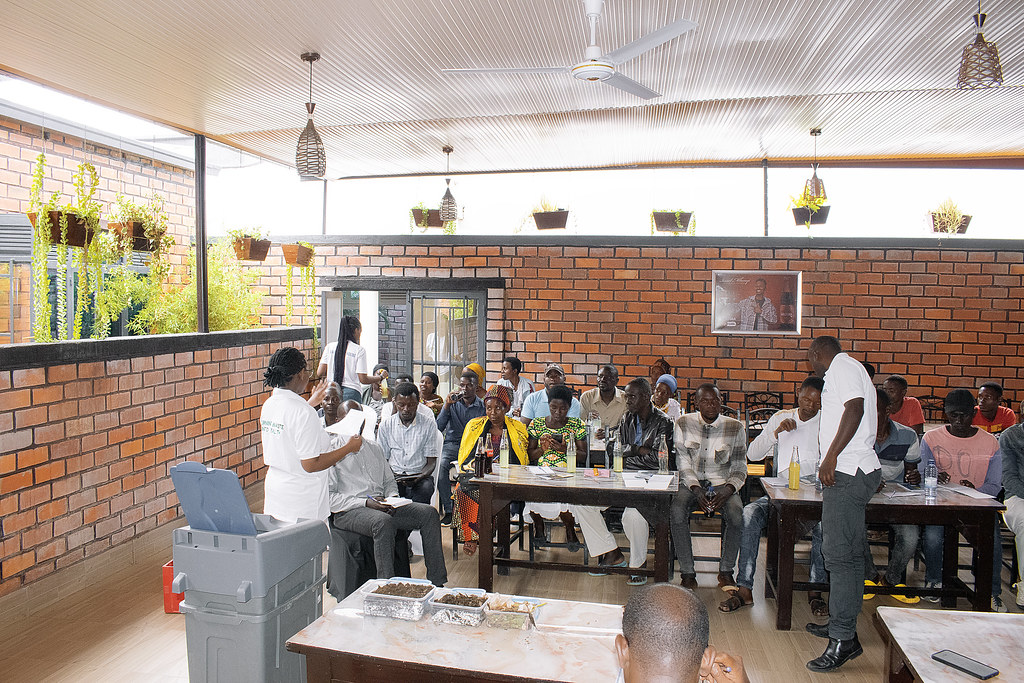
Bugesera Waste Valorization
In December 2024, Rwanda Biosolution Organization, with generous support from the Pan African Climate Justice Alliance (PACJA) under the GUARD initiative, launched a transformative waste management project in Bugesera District. This initiative aimed to tackle growing environmental and public health concerns associated with poor waste management, while empowering communities through practical, inclusive, and sustainable solutions. At the heart of the project was the principle of waste valorization converting organic waste into valuable resources such as compost and bio-fertilizers.
The project focused on three key activities. First, a training workshop was conducted on December 6 in Kabeza and Karumuna villages, gathering 50 participants. These included waste collectors, farmers, youth representatives, women’s groups, and local leaders. The training provided hands-on experience in waste sorting, composting, and understanding the economic potential of waste reuse. The workshop had a strong emphasis on gender inclusion, with 58% of participants being women, highlighting the importance of empowering women in environmental practices.
Second, on December 11, a student engagement session was held at G.S Kayenzi, involving 35 participants including students, teachers, and community representatives. The session empowered students to become environmental stewards by introducing them to composting techniques and the concept of circular economy. Students participated in practical activities such as sorting waste, preparing compost, and brainstorming ways to apply these practices at school and at home. This activity inspired the school’s Environment Club to take the lead in future clean-up and recycling efforts.
Third, on December 18, the project launched the Gatoro Sorting Village Demonstration, which served as a model learning hub for advanced waste management practices. The event brought together over 60 delegates from different districts local authorities, community leaders, private sector actors, and environmental advocates. Attendees observed real-time waste sorting and composting demonstrations, received detailed guides for replication, and explored income opportunities through compost and bio-fertilizer production. The demo day emphasized the economic and social benefits of waste valorization, especially for women and youth.
In total, the project reached 145 direct beneficiaries, with the following demographic breakdown:
- 58% women
- 42% men
- 45% youth
The outcomes of the project were multifaceted. Environmentally, it contributed to reducing organic waste in landfills and cutting methane emissions by promoting composting and recycling. Economically, it introduced new income-generating pathways for waste collectors and farmers. Socially, it strengthened community ownership and responsibility in environmental management. Educationally, it empowered young people to take the lead in promoting sustainable practices, extending the project’s impact into households and future generations.
Key lessons from the project include the importance of active community involvement, the power of youth engagement in ensuring sustainability, the positive impact of gender inclusivity, and the effectiveness of hands-on, demonstration-based learning.
Looking ahead, Rwanda Biosolution Organization recommends expanding this model to other districts, strengthening collaboration with local governments and organizations, and investing further in youth-led environmental education. This project has laid a strong foundation for long-term sustainability and serves as a replicable model for community-driven waste management and climate action in Rwanda.



